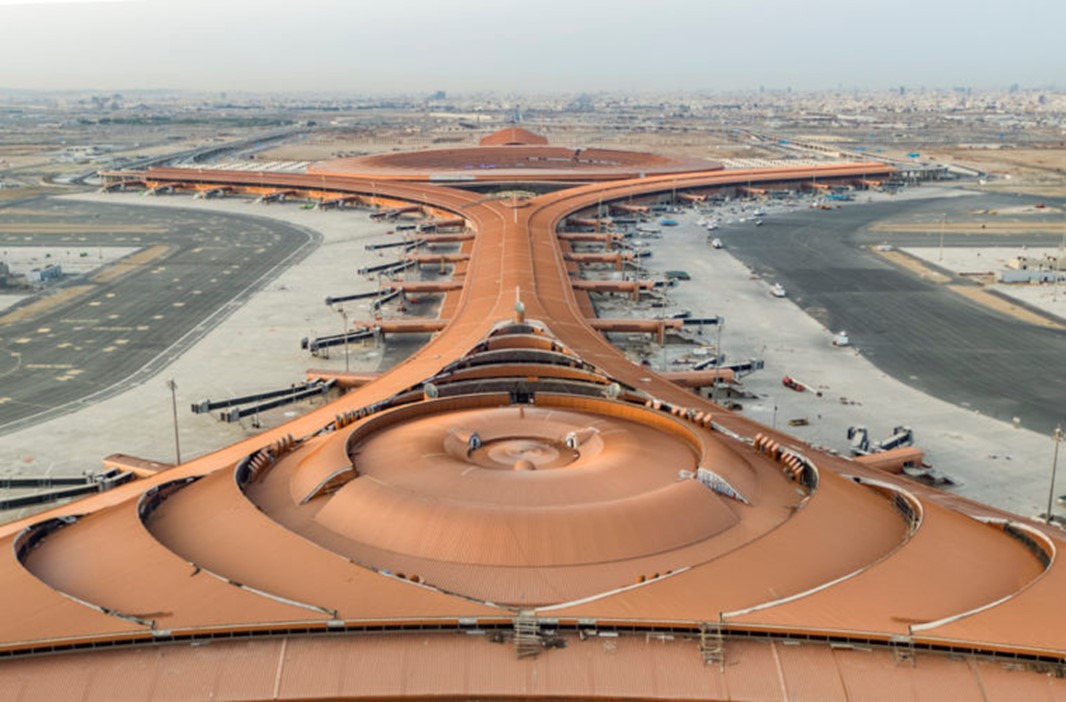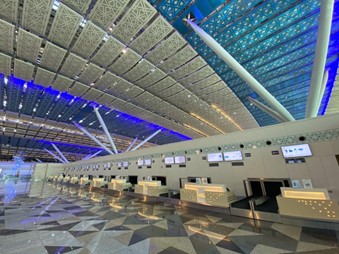Kingdom of Saudi Arabia Fact Sheet
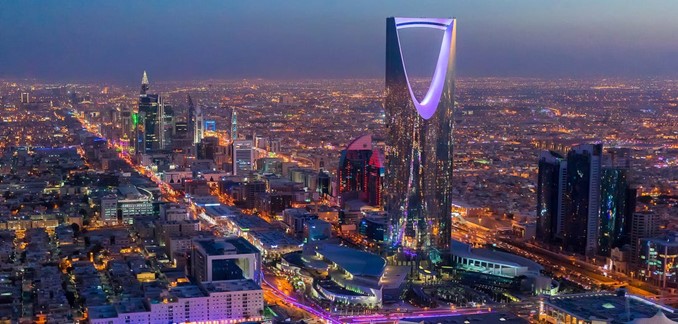
General information
Area: 2,149,690 sq. k m, about one-fifth the size of the United States
Population: 34,173,498 (July 2020 est.) note: immigrants/foreign workers make up 38.3% of the total population, according to UN data (2019)
Median age: 30.8 years
Capital: Riyadh
Ethnic Groups: Arab 90%, Afro-Asian 10%
Religion: Muslim (85-90% Sunni and 10-15% Shiite, citizens only)
Language:
Arabic is the official language of Saudi Arabia and the primary language used in all dealings and public transactions. English serves as an informal second language in the Kingdom and is spoken by a large section of its society. All road signs are bilingual, showing information in both Arabic and English.
Culture:
Saudi Arabia’s rich heritage and traditions have been shaped by its position as a historic trade hub and the birthplace of Islam. In recent years, the Kingdom has undergone a significant cultural transformation, evolving century-old customs to fit the contemporary world we live in today.
Dress
Both men and women are asked to dress modestly in public, avoiding tight-fitting clothing or clothes with profane language or images. Women should cover shoulders and knees in public.
Public behavior
Public displays of affection are not consistent with local culture and visitors should also avoid using profane language or gestures.
Violations to Public decency and penalties
Religion
At prayer time, five times a day, music is turned off in public places and many shops close briefly. For one month a year, during Ramadan, Muslims fast from dawn to dusk and so it is respectful to avoid eating or drinking in public during the day at this time.
Laws and etiquette
Public etiquette in Saudi Arabia is informed by our cultural heritage and Islamic religion, and underpinned by values that are familiar to people everywhere: respect for others, decorum in public and protection of privacy.
Transportation
Airports
Kingdom of Saudi Arabia Airports
There are 24 airports in Saudi Arabia and the 5 biggest are
- King Abdulaziz Intl Airport (Jeddah)
Right now, 26 airlines operate out of King Abdulaziz Intl Airport.
King Abdulaziz Intl Airport offers nonstop flights to 43 cities.
Every week, at least 259 domestic flights and 105 international flights depart from King Abdulaziz Intl Airport.
|
King AbdulAziz International Airport (New Terminal 1)
(KAIA) New Terminal 1 has a total area of 810,000 square meters and a capacity for handling 30 million passengers a year. It will be able to accommodate up to 70 aircraft simultaneously, including the Airbus A380 superjumbo jet.
|
|
|
The new terminal has 46 gates and 84 boarding bridges. Each gate can handle 2 smaller aircraft or 1 large aircraft. The distance between check-in to the farthest gate is 1 mile. There is an Automated People Mover (APM) that takes passengers to the International gates, which are further away. There are travellators in most of the sections and a large green garden is visible from the airside.
|
|
- King Khaled Intl Airport (Riyadh)
Right now, 22 airlines operate out of King Khaled Intl Airport.
King Khaled Intl Airport offers nonstop flights to 50 cities.
Every week, at least 316 domestic flights and 77 international flights depart from King Khaled Intl Airport.
- King Fahad Intl Airport (Dammam)
Right now, 15 airlines operate out of King Fahad Intl Airport.
King Fahad Intl Airport offers nonstop flights to 27 cities.
Every week, at least 97 domestic flights and 46 international flights depart from King Fahad Intl Airport.
- Jazan Airport (Jazan)
Right now, 5 airlines operate out of Jazan Airport.
Jazan Airport offers nonstop flights to 4 cities.
Every week, at least 72 domestic flights and 3 international flights depart from Jazan Airport.
- Abha Airport (Abha)
Right now, 6 airlines operate out of Abha Airport.
Abha Airport offers nonstop flights to 6 cities.
Every week, at least 74 domestic flights and 4 international flights depart from Abha Airport.
Trains in Saudi Arabia
There are three rail routes in Saudi Arabia, run by two different state-owned organizations, Saudi Railways Organization (SRO) and Saudi Arabia Railways (SAR).
Riyadh - Dammam (run by SRO) Riyadh - Qassim - Hail -Jauf (run by SAR) Mecca - Jeddah - Medina (run by SRO)
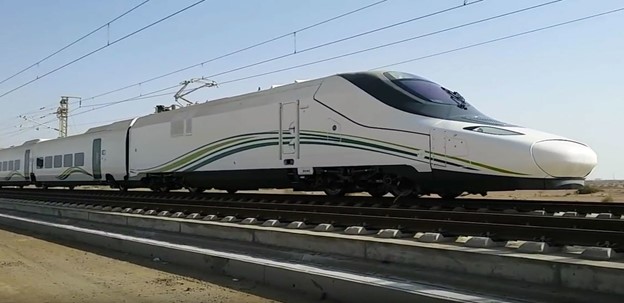
Haramain High speed railway
The Haramain high-speed railway (Haramain referring to Mecca and Medina, the two Islamic holy cities linked by it), also known as the Western railway or Mecca–Medina high-speed railway, is a 453-kilometre-long (281 mi) high-speed rail line in Saudi Arabia. It links the Muslim holy cities of Medina and Mecca via King Abdullah Economic City, using 449.2 kilometers (279.1 mi) of main line and a 3.75-kilometre (2.33 mi) branch connection to King Abdulaziz International Airport (KAIA), in Jeddah. The line is designed for a top speed of 300 kilometers per hour (190 mph).
Construction on the project began in March 2009, was officially inaugurated on 25 September 2018, and opened to the public on 11 October 2018.The railway is expected to carry 60 million passengers a year, including around 3-4 million Hajj and Umrah pilgrims, helping to relieve traffic congestion on the roads. It does not connect with the Mecca Metro.
Currency
Saudi Arabia’s national currency is the Saudi riyal (ر.س SAR), which is subdivided into 100 halala.
You’ll receive notes in denominations of five riyals, ten riyals, 50 riyals, 100 riyals and 500 riyals; and coins in one riyal, two riyals, 50 halala, 25 halala, 10 halala, five halala and one halala.
Currency exchange
All banks in the Kingdom offer currency exchange services. Exchange bureaus are located at airports, some shopping centres and various other locations in the country. The US dollar is equivalent to SAR 3.75 (fixed rate). Credit cards, such as Visa, MasterCard and American Express are accepted throughout the Kingdom. ATMs are also widely available.
Send and receive money
You can send or receive money in Saudi Arabia by transferring funds online, or through a bank that offers fast money transfer services, all of which are subject to the rules and regulations of the Saudi Arabian Monetary Authority (SAMA).
Taxes
Saudi Arabia imposes an indirect tax of 15% (VAT) on all goods and services purchased and sold by enterprises. There are some exceptions.

 English
English 
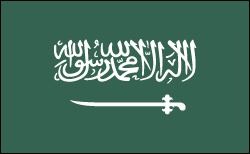 اللغة العربية
اللغة العربية 
